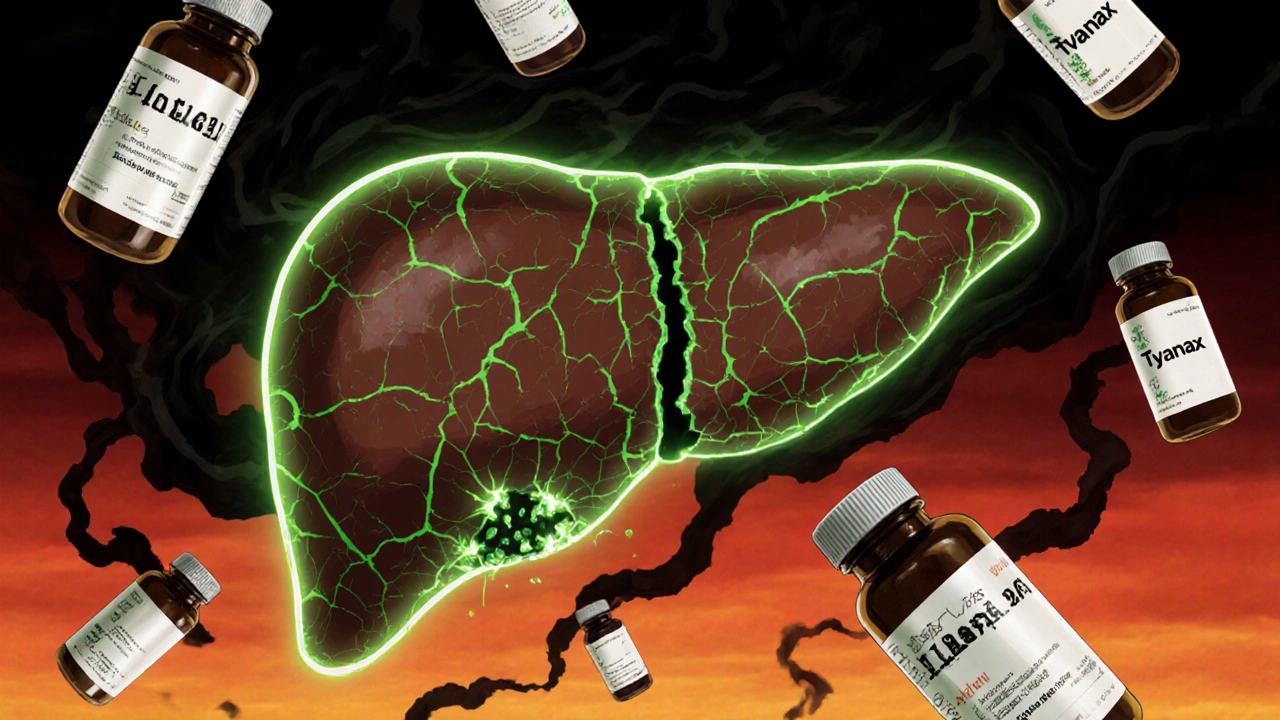Kava and Liver Function: Risks, Research, and What You Need to Know
When you take kava, a traditional Pacific Island herbal remedy used for anxiety and relaxation. Also known as Piper methysticum, it’s been used for centuries—but modern science is raising serious questions about how it affects your liver, the organ responsible for filtering toxins and processing medications. While some people swear by kava for calming nerves, others have ended up in the hospital with severe liver injury. The connection isn’t theoretical—it’s documented in case reports and health agency warnings.
What makes kava risky isn’t just the herb itself. It’s how it interacts with other substances. If you’re taking any medication that your liver breaks down—like statins, antidepressants, or even over-the-counter painkillers—kava can overload the system. Studies from the Journal of Hepatology and the FDA show that kava can inhibit key liver enzymes, slowing down how fast your body clears out other drugs. That buildup can turn harmless doses into toxic ones. People with existing liver conditions, heavy drinkers, or those using kava daily for months are at the highest risk. And unlike prescription drugs, kava supplements aren’t tested for purity. One batch might be clean; another could contain mold, pesticides, or even synthetic additives that hurt the liver even more.
There’s also confusion around safe forms. Traditional water-based extracts used in the Pacific Islands have a much lower risk profile than alcohol-based tinctures or concentrated pills sold online. The difference isn’t just strength—it’s chemistry. Alcohol pulls out compounds that are more likely to cause liver stress. If you’re considering kava, ask yourself: Why are you using it? Is anxiety keeping you up at night? Are you trying to avoid prescription meds? There are safer alternatives, like magnesium, L-theanine, or even cognitive behavioral techniques, that don’t carry liver warnings. And if you do try kava, don’t mix it with alcohol, acetaminophen, or any other supplement that lists "liver" as a potential side effect.
The bottom line? Kava isn’t a harmless herbal tea. It’s a potent substance that interacts with your body’s detox system in ways most people don’t understand. If you’ve ever had unexplained fatigue, yellow eyes, dark urine, or pain under your right ribs after taking kava, stop immediately and get your liver checked. You’re not alone—dozens of cases have been reported worldwide. The posts below give you real-world comparisons, patient stories, and science-backed advice on herbal safety, drug interactions, and how to protect your liver when using supplements. What you learn here could save you from a preventable health crisis.
Kava and Liver Health: Safety with Other Medications

Kava may help with anxiety, but combining it with medications can cause severe liver damage. Learn which drugs are dangerous with kava, who’s at risk, and safer alternatives.
